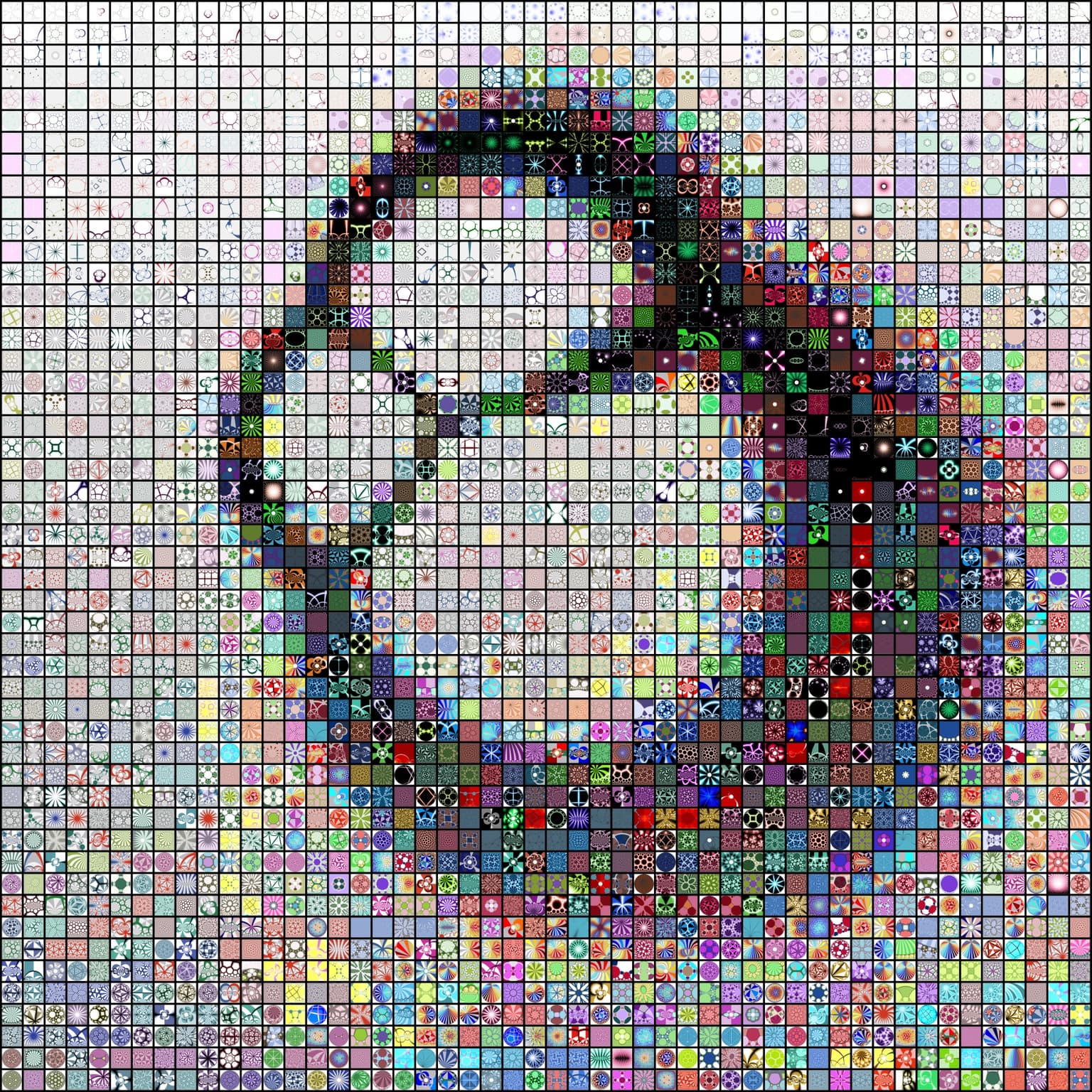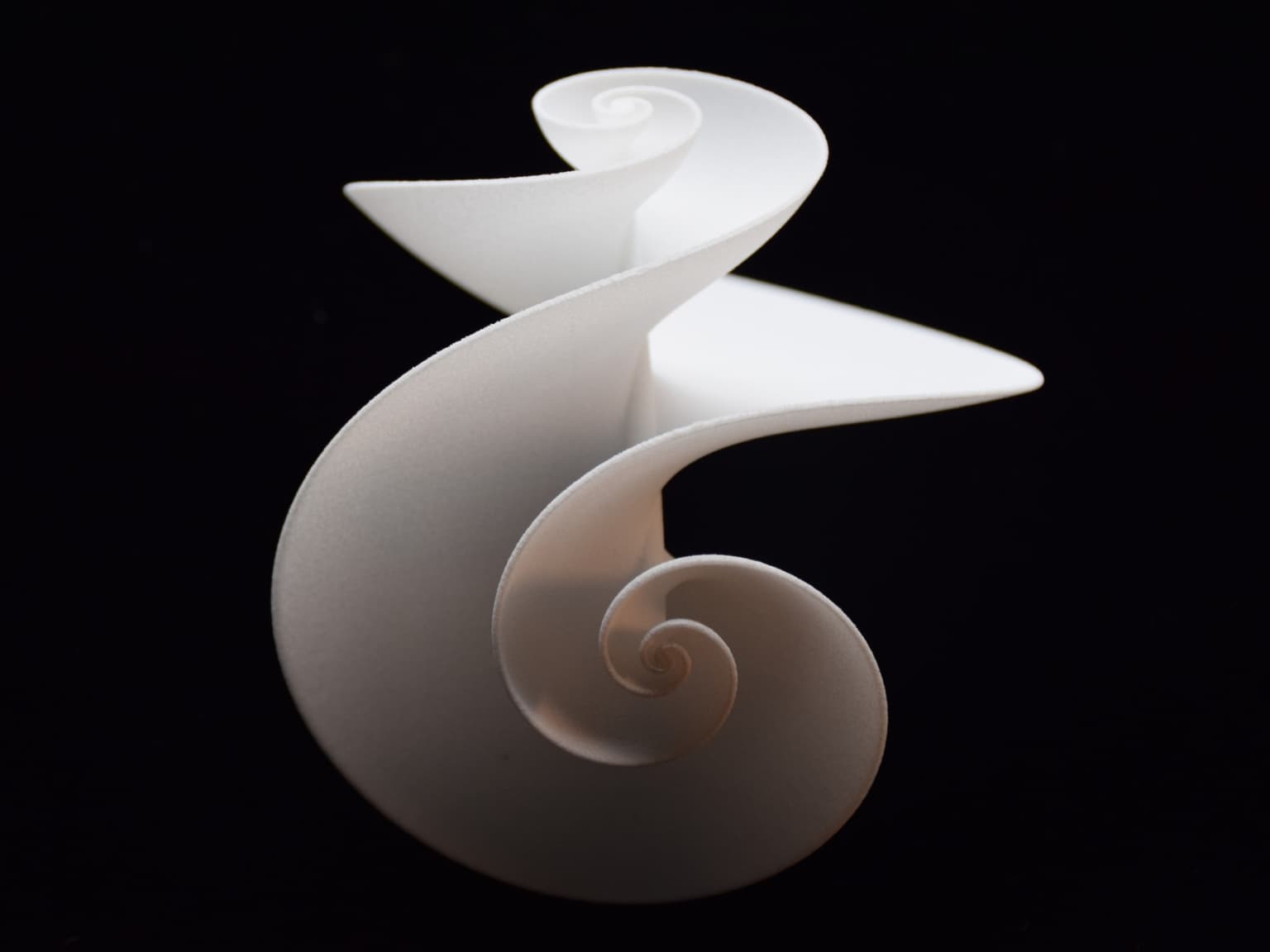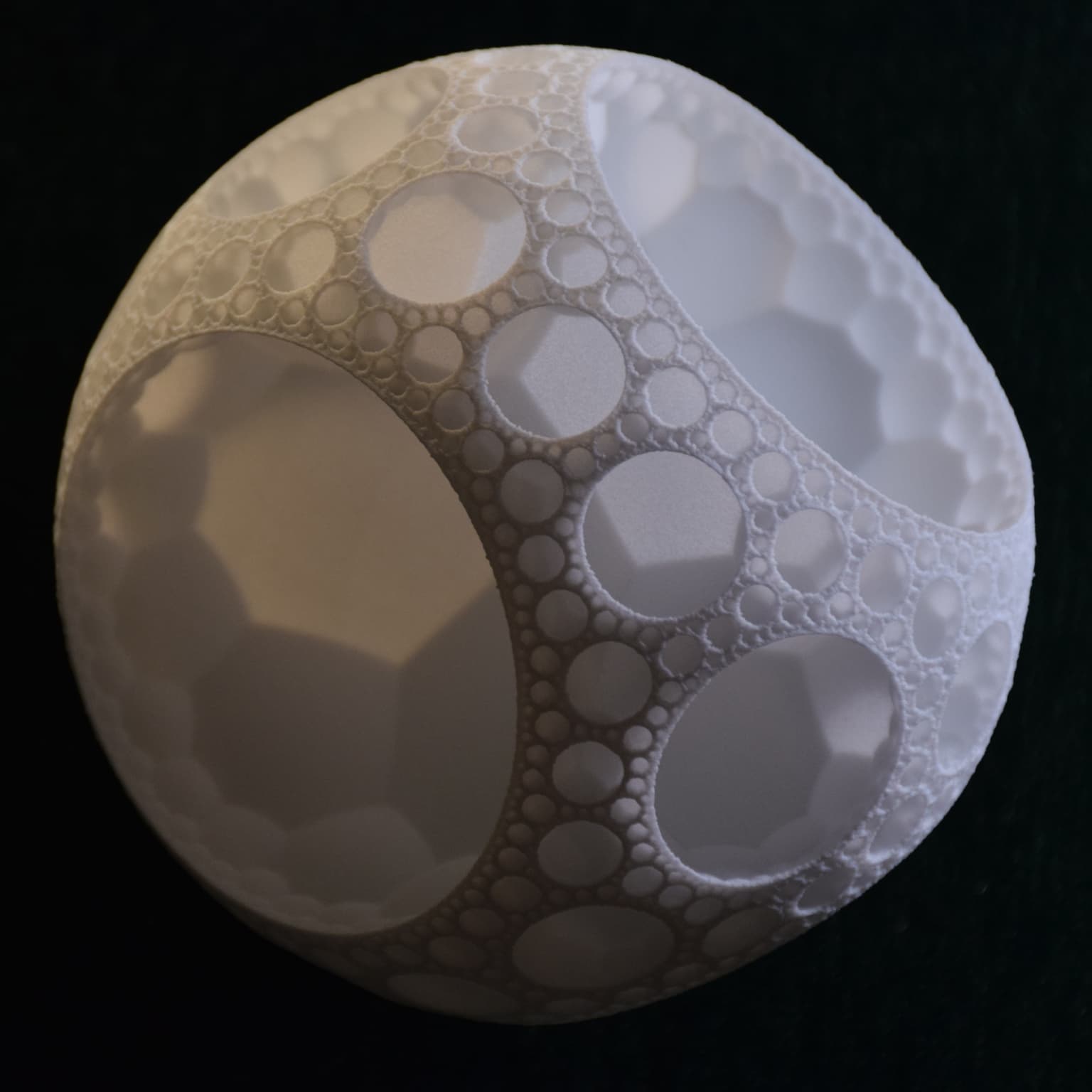2019 Icerm Illustrating Mathematics
Roice Nelson
Artists
Roice Nelson
Software Developer
GE Aviation
Austin, TX
Statement
Roice is a software developer with a passion for exploring mathematics through visualization.
Artworks

Geometries
64 x 64 cm
Digital print with interactive accessory
2019
Twenty-five hundred images make up this mosaic and give the viewer a window into all three constant curvature, two-dimensional geometries.
From a distance, we see the stereographic projection of a spherical tiling of triangles (a tetrahedron). As we look closer, we find this is a meta tiling formed by a lower-level Euclidean tiling of squares. Zooming in even further, we can see that each one of the square tiles is itself an image of a hyperbolic tiling (generated by the Twitter bot @TilingBot).
Viewers are encouraged to use the accompanying magnifying glass to get a closer look.

Hyperbolic Helicoid
10 x 10 x 10 cm
3D printed sculpture
2018
Like a Euclidean helicoid, this hyperbolic variant is a ruled surface formed by rotating a (hyperbolic) line while translating it along a perpendicular axis. The helicoid axis is thickened into a hyperbolic cylinder that takes on a banana-like shape in the Poincaré ball model of hyperbolic space. Choosing an axis avoiding the ball origin breaks some of the visual symmetry. The single ideal edge of the surface traces out a special curve on the ball boundary called a loxodrome.

{7,3,3} Hyperbolic Honeycomb
12 x 12 x 12 cm
3D printed sculpture
2017
A mathematical honeycomb is a way to pack "cells" together with no gaps. In this hyperbolic honeycomb, the cell boundaries are composed of regular heptagons, marked by the 7 in the {7,3,3} "Schläfli symbol". The heptagons lie on infinite sheets with 3 heptagons meeting at each vertex, denoted by the second number in the symbol. The final number tells us that 3 cells meet at each edge. The Poincaré ball model used for this sculpture warps the honeycomb, but every one of the sheets you see is identical in hyperbolic space.